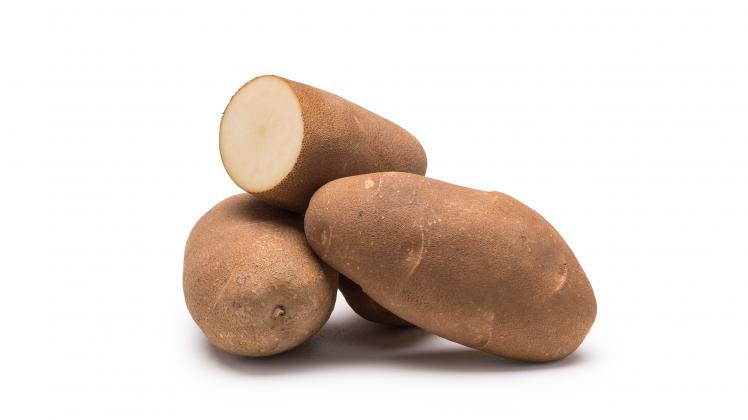EEUU: Castle, Echo russet varieties reach growers for field trials
Two new potatoes could save growers in Oregon, Idaho and Washington millions of dollars by curtailing several serious diseases and improving processing quality.

The potatoes — Echo Russet and Castle Russet — are in the hands of growers for trials thanks to the breeding efforts of Oregon State University and partners in the Tri-State Potato Breeding Program.
In Hermiston, Sagar Sathuvalli, an assistant professor of potato breeding and genetics in OSU’s College of Agriculture, works to develop potatoes resistant to diseases for an industry that was Oregon’s sixth highest producing agricultural commodity in 2016 at $187 million.
Sathuvalli said Castle Russet was bred mainly for disease resistance, while breeding work on Echo Russet focused on high-yield, good agronomic performance and good processing qualities. Most of the Oregon crop heads to processors to be turned into French fries and other potato products.
Both Castle Russet and Echo Russet show tolerance to diseases that include potato mop-top virus, which is spread by the problematic powdery scab fungus, according to Sathuvalli. They also are tolerant to soft rot and somewhat to verticillium wilt.
Echo Russet is noted for requiring less fertilizer, reducing the need for it by 30 to 40 percent — only 250 parts of nitrogen per acre instead of 400.
The Castle Russet variety is also resistant to all strains of potato virus Y and to corky ring spot, which is caused by tobacco rattle virus and vectored by stubby root nematodes, according to Sathuvalli. Resistance to diseases allows growers to use less fumigant, an important consideration as farmers deal with increasing restrictions.
Castle Russet also has the ability to cleanse a field infested with stubby root nematodes carrying tobacco rattle virus.
“That means you have a good crop to sell, and it cleanses the field to grow other crops,” he said.
Getting to the point of releasing a new potato is a long process, Sathuvalli said. From the time breeding begins to when the potatoes are approved for release, it usually takes 12 to 15 years of exacting field trials.
— Kym Pokorny, Oregon State University
Fuente: potatonewstoday.comspudman.com






